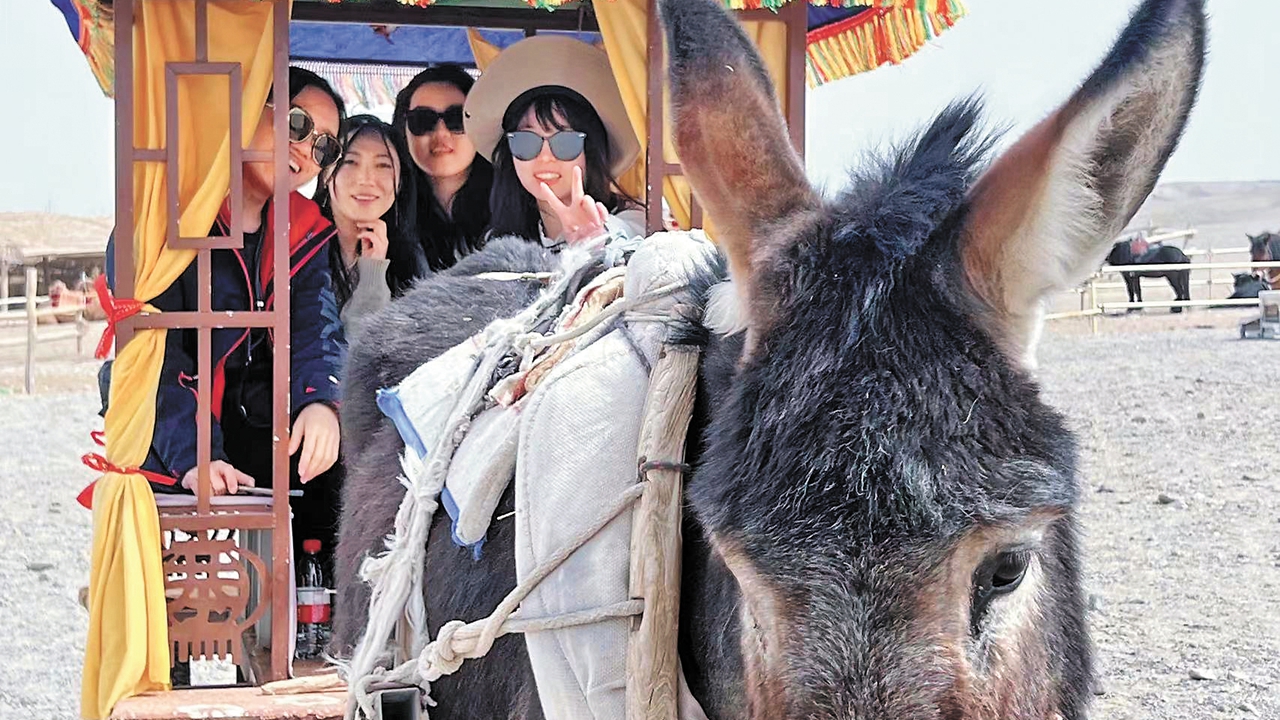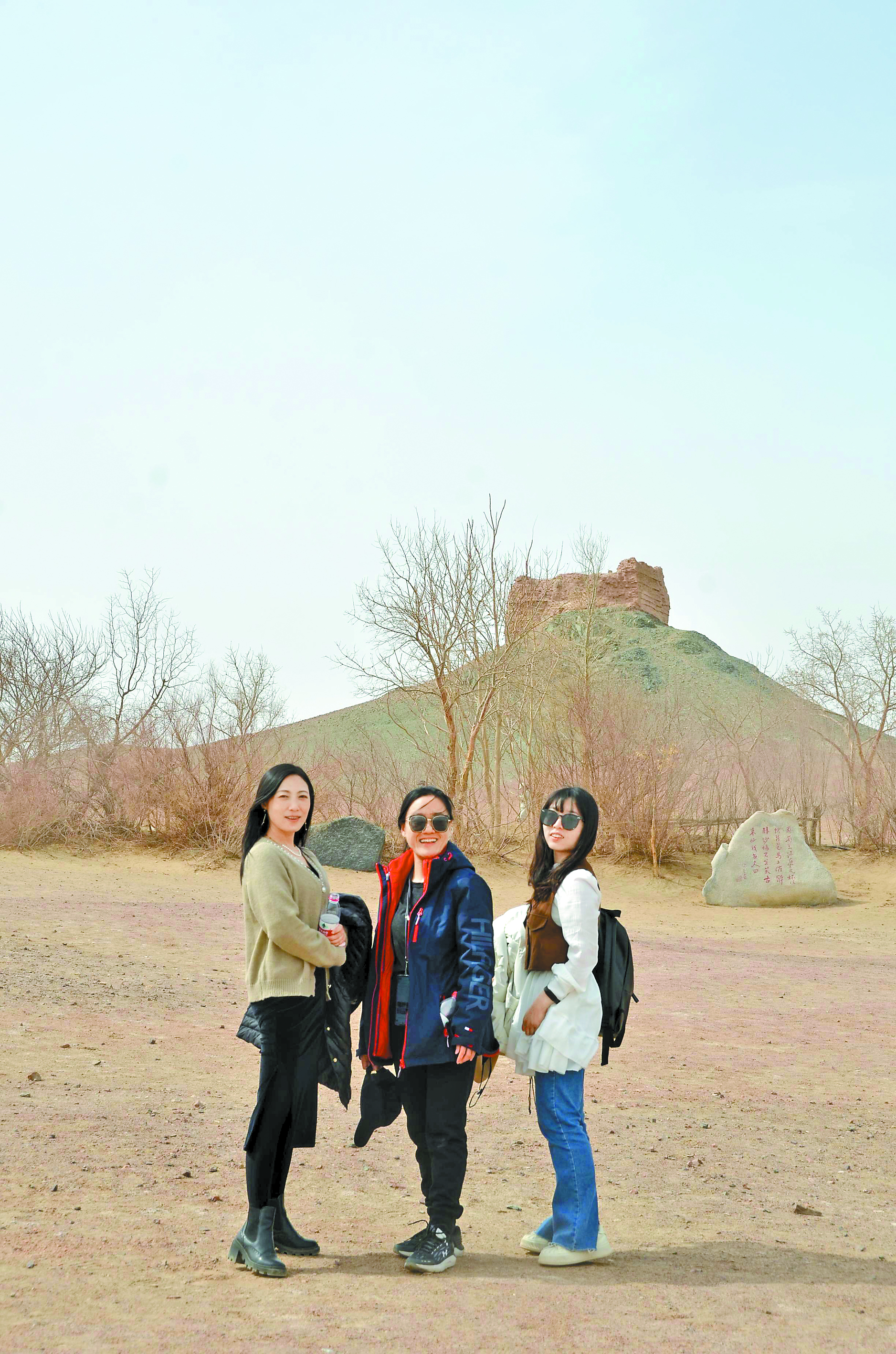The rise of dazi culture: Exploring the social shift in SZ youth
Writer: Zhang Yu | Editor: Zhang Chanwen | From: Shenzhen Daily | Updated: 2024-05-09
From foodies to fitness and travel buddies, many young Chinese are on the lookout for new ways to connect with others and share their hobbies. A popular way to do so is through dazi socializing.
Unlike close friends who need to socialize frequently and keep in close contact, a dazi is a more temporary and sometimes superficial social partner.
The term “dazi” hails from the Shanghai dialect and originally referred to “card-playing buddies.” Later, the term developed a broader meaning — companions who engage in certain activities together are commonly called “dazi.”
A search for “Shenzhen dazi” on China’s lifestyle-focused social media platform Xiaohongshu turns up numerous users seeking various types of companions like food lovers, fitness fanatics, travel buddies, weekend hikers, or study companions.
New way to socialize
“It’s normal to have differences when traveling. We can just be tolerant and seek common ground while reserving differences,” a girl using the pseudonym Zhouzhou told Daily Sunshine.
Zhouzhou, born in the 2000s, is currently pursuing a master’s degree in Shenzhen. She usually travels with friends, and they often visit scenic spots and take photos of each other.

A photo taken by a concert dazi shows Zhouzhou from Shenzhen at Hong Kong singer Gloria Tang’s concert in Foshan City on April 20. Daily Sunshine
For this year’s May Day holiday, Zhouzhou planned to travel but couldn’t find an ideal partner in her social circle. She therefore decided to go online and find a dazi — preferably someone like herself — who enjoys taking photos, has similar consumption behaviors, and appreciates a relatively consistent itinerary plan.
According to Zhouzhou, she spent a long time browsing social media and added three or four netizens who wanted to go to Fujian Province. Eventually, she selected a female college student studying in Changsha City, Hunan Province, as a travel buddy for the trip.
Zhouzhou said she first told her travel dazi about a few scenic spots that she wanted to visit, and then her travel dazi planned an itinerary that met Zhouzhou’s expectations. Their travel accommodations were found by Zhouzhou and prepaid online. Her dazi quickly transferred half of the room fees to her.
Although the conversation between the two was not very in-depth, Zhouzhou said she felt that her travel companion’s personality was quite similar to her own. The dazi did the research for the trip very carefully and respected Zhouzhou’s opinions.
Before the May Day holiday trip, Zhouzhou had already found a dazi for Hong Kong singer Gloria Tang’s concert in Foshan City on April 20. Zhouzhou said her concert dazi was quite easygoing, and most of the arrangements were based on Zhouzhou’s advice.
Zhouzhou said she also found an online dazi when she participated in some in-person events. “Friends may just be with you, but it’s better to find like-minded dazi to participate in some activities together. You can chat more,” she said.

Xiaomi (L) from Shenzhen and her travel dazi have a good time during a trip to Gansu Province in March.
Like Zhouzhou, a 43-year-old white-collar worker who goes by the alias of Xiaomi has looked for a travel dazi on more than one occasion.
This March, Xiaomi went to Gansu Province and found a local resident to act as her travel companion. She found another dazi during the trip, and the three of them had a good time together throughout the journey.

Xiaomi (C) and her travel dazi pose for a group photo in Gansu.
“The three of us later formed a small group on WeChat and even shared good books we had read. Starting as travel dazi, we have become friends who encourage each other. I think I am lucky!” Xiaomi told the Daily.
Safety first when seeking dazi
The dazi culture doesn’t come without risks. While looking for a dazi is not difficult, finding a compatible or responsible dazi is not as easy.
A Shenzhen netizen claimed to have found two unsatisfactory hiking buddies online. One was late because she was doing her makeup and came without any hiking gear, while the other repeatedly changed plans and didn’t come at all, according to the Daily report.
Another netizen said that he went out with a travel dazi and found that the other party’s demands were too high and completely out of sync with his daily habits. Therefore, he returned his tickets and changed his itinerary halfway through the trip. As a result, the travel dazi later left dozens of abusive messages on his social media page.
On Xiaohongshu, some posts related to “dazi” include reminders from the social media platform: “Please carefully screen content information and pay attention to personal safety.”
According to Xiaomi, she has not encountered any unfriendly dazi. She said she usually pays attention to her first impressions of a potential dazi when initially chatting with them, and if she finds that there are differences in ideas, she will end the conversations.
According to lawyer Wu Hao from Guangdong Ying Zun Law Firm, video makes it easier for people to quickly form a first impression. This improves efficiency to some extent, but the authenticity of information is more difficult to verify.
“Dazi may be more suitable for activities in relatively safe environments and for short periods of time; or one can at least start with such activities to verify the character and ability of the dazi,” Wu said.